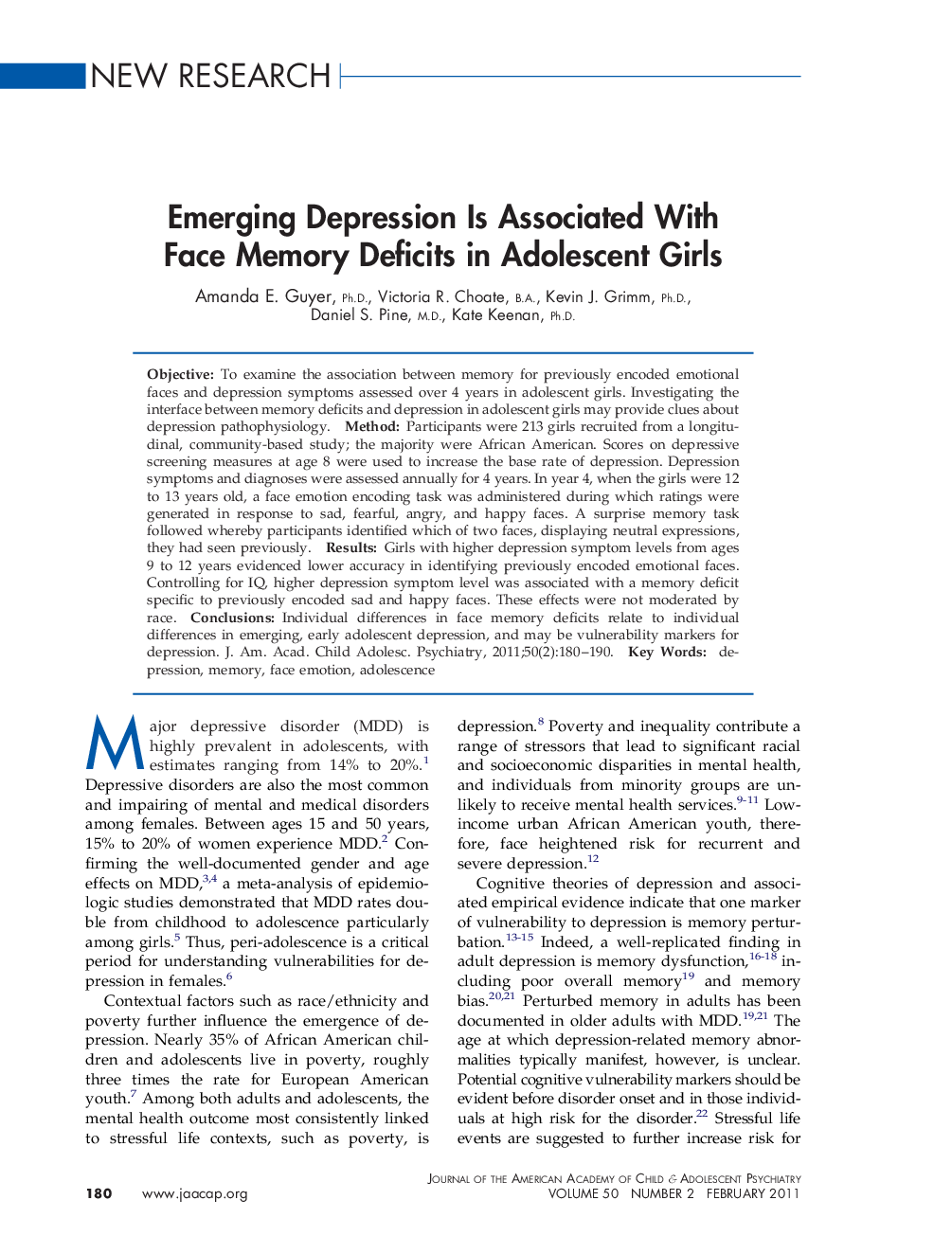| Article ID | Journal | Published Year | Pages | File Type |
|---|---|---|---|---|
| 324253 | Journal of the American Academy of Child & Adolescent Psychiatry | 2011 | 11 Pages |
ObjectiveTo examine the association between memory for previously encoded emotional faces and depression symptoms assessed over 4 years in adolescent girls. Investigating the interface between memory deficits and depression in adolescent girls may provide clues about depression pathophysiology.MethodParticipants were 213 girls recruited from a longitudinal, community-based study; the majority were African American. Scores on depressive screening measures at age 8 were used to increase the base rate of depression. Depression symptoms and diagnoses were assessed annually for 4 years. In year 4, when the girls were 12 to 13 years old, a face emotion encoding task was administered during which ratings were generated in response to sad, fearful, angry, and happy faces. A surprise memory task followed whereby participants identified which of two faces, displaying neutral expressions, they had seen previously.ResultsGirls with higher depression symptom levels from ages 9 to 12 years evidenced lower accuracy in identifying previously encoded emotional faces. Controlling for IQ, higher depression symptom level was associated with a memory deficit specific to previously encoded sad and happy faces. These effects were not moderated by race.ConclusionsIndividual differences in face memory deficits relate to individual differences in emerging, early adolescent depression, and may be vulnerability markers for depression.
